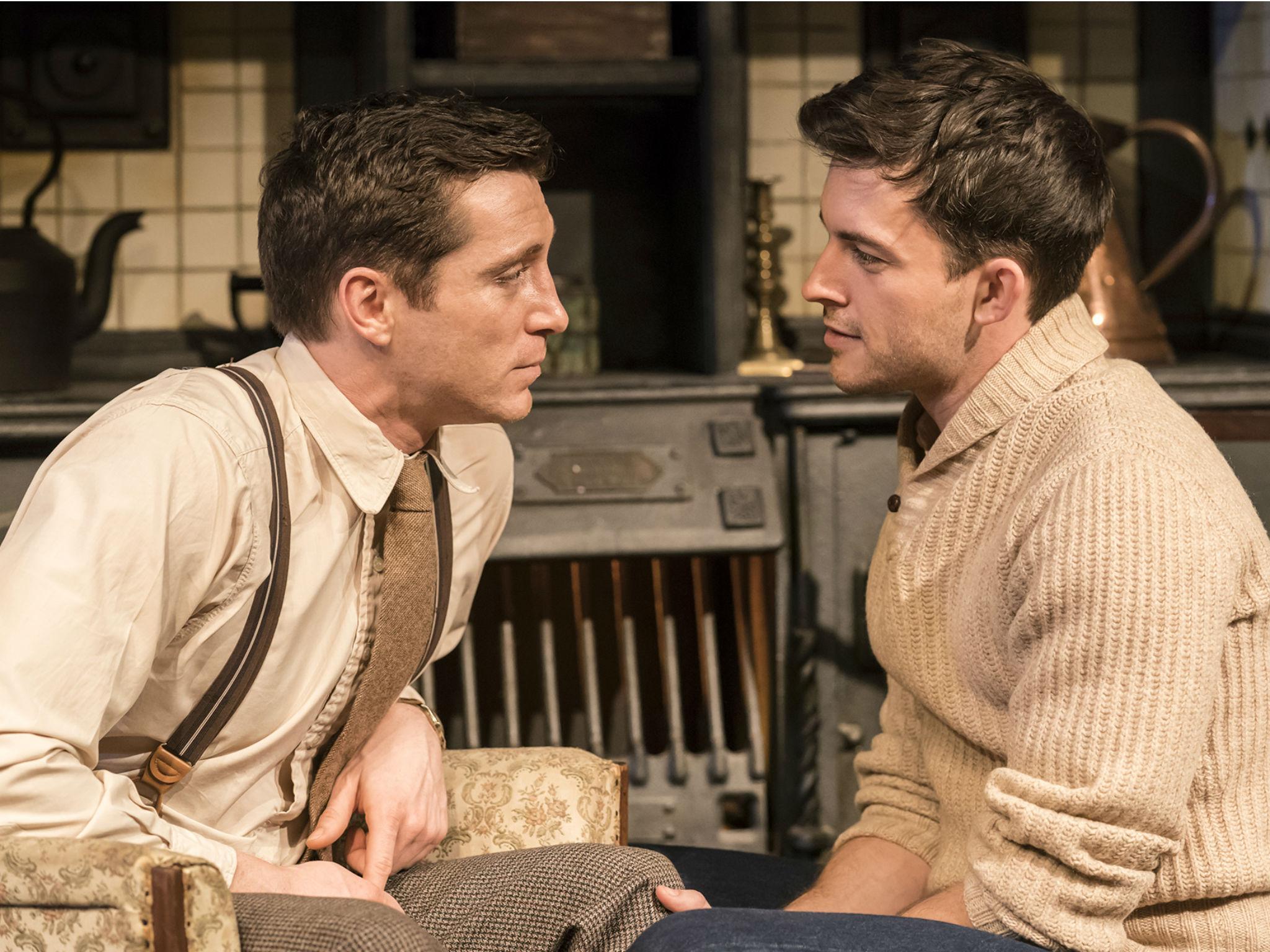The York Realist, Donmar Warehouse, London, review: A pitch-perfect, impeccably acted production
Peter Gill's gay love story is about the conflicting aspirations of the lovers rather than societal prejudice that drives the two men apart

Your support helps us to tell the story
From reproductive rights to climate change to Big Tech, The Independent is on the ground when the story is developing. Whether it's investigating the financials of Elon Musk's pro-Trump PAC or producing our latest documentary, 'The A Word', which shines a light on the American women fighting for reproductive rights, we know how important it is to parse out the facts from the messaging.
At such a critical moment in US history, we need reporters on the ground. Your donation allows us to keep sending journalists to speak to both sides of the story.
The Independent is trusted by Americans across the entire political spectrum. And unlike many other quality news outlets, we choose not to lock Americans out of our reporting and analysis with paywalls. We believe quality journalism should be available to everyone, paid for by those who can afford it.
Your support makes all the difference.Peter Gill's beautiful 2002 play returns to London in a pitch-perfect, impeccably acted production by Robert Hastie that leaves you in no doubt that The York Realist is a modern classic. Gill made his name as a director in the mid-1960s with his revelatory revivals of the plays of DH Lawrence at the Royal Court. This piece has distinct whiff of Lawrence in its concern with the troubled overlap between sex and class and the strong pull of roots and family allegiances. But Gill has expanded the focus. He's written a convincing gay love story in which it is the conflicting aspirations of the lovers rather than societal prejudice that drives the two men apart.
The setting is a tied cottage near York, which farm-labourer George shares with his frail, widowed mother. We are in the early 1960s. George has been cast as one of Christ's crucifiers in a community production of the York medieval mystery plays. But though he has a natural flair for acting, he's stopped going to rehearsals. John, the assistant director – a theatre professional, middle-class, up from London for this gig – arrives to find out the cause. Potently played by Ben Batt, George runs bracingly against gay stereotype. He's rugged and taciturn and relaxed about his sexuality (at least in private). Jonathan Bailey's more uptight John conveys very well the dazzled tourist aspect of this metropolitan outsider – voicing aesthetic appreciation for, say, the old-fashioned kitchen range (“Oh aye, he don't have to clean it”) – and the affection for George with which he becomes aglow. By the end of the first evening (fabricating excuses about a missed last bus), the pair are preparing to bed down in the tiny cottage.
The two actors capture superbly the undemonstrative tenderness, the sense of mutual need and the worry about where this will take them. The bulk of the play is in flashback. It begins and ends with a painful encounter between the now-estranged couple after the death of George's mother. John has made attempts to persuade his friend to come to London and try for a career in acting. There have been visits, but because of a fear of failure, a wariness about ambition, and a feeling that he has left it too late, George cannot be brought to uproot himself. His worries about his accent, “I couldn't be in Shakespeare, me. And if I couldn't do that! No, no thanks. Just be some Northerner as a job” are ironic, given that (as John tries to tell him), theatre is on the cusp of a revolution that will virtually outlaw received pronunciation in some quarters. Batt gives us unforgettable glimpses of the character's repressed agony.
Gill brings to life this rural community with such ease and vividness that the play never feels schematic. The splendidness of Hastie's ensemble is shown up at its best in a wonderful scene, just after interval, where the marvelling family troop back for a cup of tea after seeing a performance of the Mystery Plays. “It was very Yorkshire, wasn't it? Not that I mind”: Lesley Nichol is lovely as the kind, fussing mother. Lucy Black and Katie West offer layered, moving performances as the sister and the ever-helpful would-be wife which indicate that, at some level, they know the reason why this friendship is so close. Who owns art? What is the difference between the tradition of the medieval mysteries and the modern plays to which our hero feels excluded. The title may ambiguously denote George (is he right to close off his options in such a changing world?) and refers to the gifted, anonymous writer who brought a broad energising Yorkshire vernacular to the mystery plays about the Passion.
Terse, understated and achingly eloquent, this revival of The York Realist is a co-production between the Donmar Warehouse and Sheffield Theatres and will also be performed at the Sheffield Crucible between 27 March and 7 April. It is not to be missed.
Until 24 March (donmarwarehouse.com)
Join our commenting forum
Join thought-provoking conversations, follow other Independent readers and see their replies
Comments